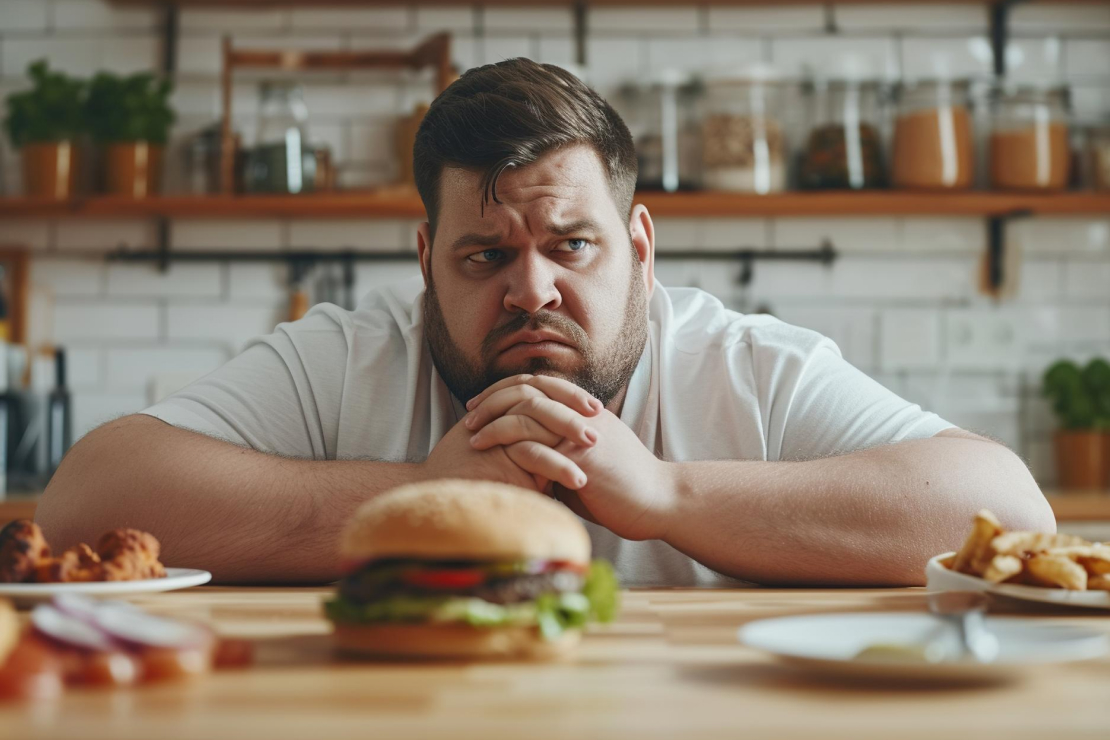Is Weight Loss Sabotaged by Your Subconscious Beliefs?
Dive deep into how your subconscious beliefs about self-worth, food, and success might be secretly sabotaging your weight loss efforts, and learn how to reprogram your mind for lasting change.

Table of Content
The Hidden Architect of Your Habits
You follow your diet meticulously. You never miss a workout. Yet, you find yourself stuck in a cycle of self-sabotage, unable to achieve or maintain your weight loss goals. The problem might not be your diet plan or your exercise routine, but a far more powerful, invisible force: your subconscious beliefs. These deeply ingrained convictions, formed throughout your life, act as the hidden architects of your behaviors, and they can either support or sabotage your conscious efforts.
What Are Subconscious Beliefs?
Your subconscious mind is like the vast, submerged part of an iceberg. It stores every experience, memory, and learned behavior. Subconscious beliefs are the core conclusions you've drawn from these experiences, often without your conscious awareness. They operate on autopilot, shaping your reactions, emotions, and choices long before your conscious mind has a chance to weigh in.
Common Subconscious Beliefs That Sabotage Weight Loss
Through analyzing behavioral patterns from anonymized user data, AI can help highlight actions that may be linked to these common, limiting subconscious beliefs:
1. "I Don't Deserve to Be Healthy/Happy."
This belief often stems from deep-seated feelings of low self-worth. If you subconsciously feel you are not worthy of success, you will find ways to sabotage your own efforts to align with this belief.
- Behavioral Pattern: Consistently giving up right before reaching a major milestone.
2. "Losing Weight is a Struggle."
If you've always heard that weight loss is incredibly difficult, or if you've struggled in the past, your subconscious may have accepted this as a fundamental truth. This creates a self-fulfilling prophecy where you expect and create struggle.
- Behavioral Pattern: Feeling constantly deprived and focusing on what you "can't" have, leading to eventual rebellion and bingeing.
3. "Food is My Only Comfort/Reward."
This belief is often formed in childhood, where food is used to soothe distress or celebrate achievements. Your subconscious learns that food is the primary tool for emotional regulation.
- Behavioral Pattern: Turning to high-calorie foods immediately after a stressful event or as a reward for a hard day's work.
4. "If I Lose Weight, I'll Lose My Identity."
For some, being overweight has become a part of their identity. The idea of changing this can be subconsciously terrifying, as it means entering an unknown version of oneself.
- Behavioral Pattern: Social anxiety around new activities or fear of drawing attention to oneself as weight loss becomes noticeable.
5. "It's Not Safe to Be Attractive."
This belief can be rooted in past trauma or a desire to avoid unwanted attention. The subconscious may equate being overweight with being safe and protected.
- Behavioral Pattern: Regaining weight after reaching a certain level of attractiveness or feeling uncomfortable with compliments.
How to Identify and Reprogram Your Limiting Beliefs
Changing subconscious beliefs is not a quick fix, but a process of consistent, conscious effort. It involves bringing the subconscious into the conscious light and actively working to reframe it.
Step 1: Awareness Through Journaling
You cannot change what you are not aware of. Start by journaling about your relationship with food and your body. Ask yourself probing questions:
- What are my earliest memories of food?
- What did my family teach me about weight and health?
- When I sabotage my diet, what am I feeling right before?
- What am I afraid will happen if I succeed?
Step 2: Challenge and Reframe
Once you identify a limiting belief, challenge its validity and create a new, empowering belief to replace it.
| Old Limiting Belief | New Empowering Belief (Affirmation) |
|---|---|
| "I always fail at diets." | "Every choice is a new opportunity. I am capable of making healthy choices that serve my body." |
| "I need food to cope with stress." | "I have many powerful tools to manage stress. I can find comfort in a walk, in music, or in talking to a friend." |
| "It's selfish to focus on my body." | "Taking care of my body is an act of self-respect. When I am healthy, I can give more to others." |
Step 3: Reinforcement Through Action
Your subconscious learns from your actions. Every time you act in alignment with your new belief, you strengthen it.
- Act As If: Behave as the person who already holds the new belief. If your new belief is "I am an active person," go for a walk, even a short one.
- Visualize Success: Spend a few minutes each day vividly imagining yourself living with your new belief, feeling the positive emotions associated with it.
The Role of AI in Uncovering Subconscious Patterns
While AI cannot read your subconscious mind, it can act as a powerful mirror, reflecting your behaviors back to you. By tracking your eating patterns, moods, and activities, AI tools can identify discrepancies between your stated goals and your actual behaviors, often pointing to an underlying subconscious conflict.
- Behavioral Analysis: AI can highlight patterns, such as consistently overeating after a specific trigger, which can help you start the journaling and awareness process.
- Objective Feedback: The AI provides data without judgment, allowing you to observe your patterns without the shame that can often cloud self-reflection.
Conclusion: Winning the Inner Game of Weight Loss
The journey to sustainable weight loss is an inside job. It requires you to become a detective of your own mind, uncovering the hidden beliefs that drive your behavior. By bringing these subconscious patterns into the light and actively working to reframe them, you can align your mind with your goals, making healthy choices feel natural and effortless, not like a constant battle. True transformation happens when your subconscious desires the same thing your conscious mind is striving for.
"Until you make the unconscious conscious, it will direct your life and you will call it fate." – Carl Jung
Frequently Asked Questions
How do I know if my beliefs are sabotaging me?
Look for patterns of repeated self-sabotage. If you consistently do things that go against your stated goals despite your best intentions, there is likely a conflicting subconscious belief at play.
Can affirmations alone change my subconscious beliefs?
Affirmations are a powerful tool, but they are most effective when combined with action. Your subconscious is more convinced by what you do than by what you say. Use affirmations to guide your actions.
Should I see a therapist for this?
If you find that your subconscious beliefs are deeply rooted and difficult to change on your own, working with a therapist who specializes in cognitive-behavioral therapy (CBT) or eating psychology can be extremely beneficial.
Start Your Health Journey Today
Download Macro Tracking AI and take control of your nutrition with the power of artificial intelligence.
Download on App Store

